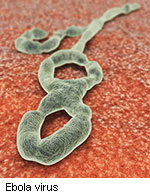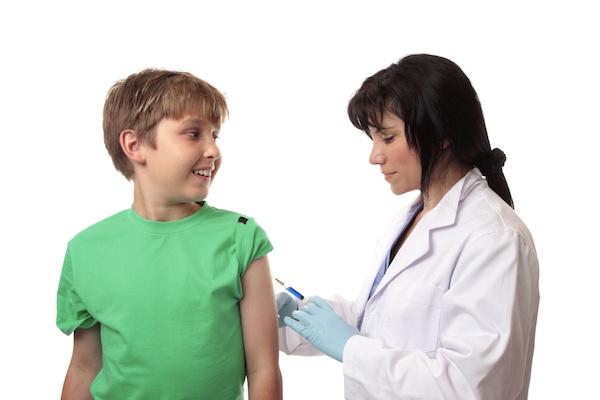
TUESDAY, Feb. 10, 2015 (HealthDay News) — An investigational drug designed to stop Ebola in its tracks has shown early promise in a study involving rhesus monkeys, researchers say.
The drug in question, for now dubbed AVI-7537, appeared to safely protect 75 percent of treated monkeys from Ebola after exposure to the virus. However, it has not been tested in humans, and trials in animals often fail to translate to success in people, experts note.
The search for viable medicines against Ebola has gained urgency as an outbreak in West Africa continues. According to the World Health Organization, by Feb. 9 almost 23,000 cases of Ebola illness have been recorded in Guinea, Liberia and Sierra Leone, including almost 9,200 deaths.
The experimental medication under study is part of the so-called PMO class of drugs, which are designed to attack the genetic code of viruses like Ebola, and short-circuit the ability to reproduce and take hold.
Prior research has already shown that a PMO drug that simultaneously targeted two Ebola genes — VP35 and VP24 — provided monkeys with substantial protection against the virus.
But the current study reveals that the VP35 gene is actually a false target, and that a drug aimed solely at the VP24 gene is sufficient to do the job.
“The study demonstrates that we can protect non-human primates from Ebola virus, using only a single . . . agent,” study lead author Travis Warren said in a news release from the American Society for Microbiology.
Warren is an investigator at the U.S. Army Medical Research Institute of Infectious Diseases (AMRIID), in Fort Detrick, Md. His team published their findings online Feb. 10 in the journal mBio.
To test the single-target drug, the team divided Ebola-infected monkeys into four injection groups: one given AVI-7537; one given the prior dual-target drug; one given a drug that targets only the VP35 gene; and one that included a “dummy” saline solution in place of any actual drug.
The result: AVI-7537 and the older dual-target medication were comparably successful in lowering viral load and reducing or eliminating the virus. Ultimately, three-quarters of the AVI-7537 monkeys survived until the end of the study, compared with 62 percent of those getting the combination therapy.
By contrast, monkeys treated with the drug that only targeted the VP35 gene ended up dying within 10 days after infection, while those receiving no medications died within eight days, the findings showed.
“The work demonstrates that impairment of VP24 alone is enough to protect against Ebola virus infection, and that targeting VP24 may lead to the development of more effective countermeasures against this important viral pathogen,” noted study co-author Sina Bavari, science director for AMRIID.
The investigators noted that as of now there are no officially licensed vaccines against Ebola.
The study was conducted by the U.S. Army and Sarepta Therapeutics, Inc.
More information
There’s more on Ebola prevention at the U.S. Centers for Disease Control and Prevention.
Copyright © 2026 HealthDay. All rights reserved.

